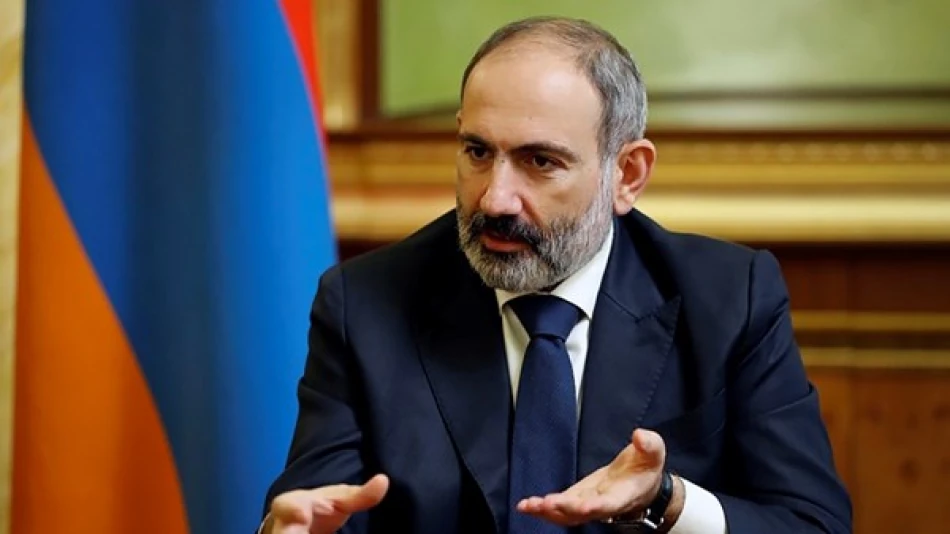
Armenian PM Hails Landmark Peace Deal with Azerbaijan, Signaling Historic Shift in Caucasus Relations.
Armenia and Azerbaijan Signal Historic Peace Deal After Decades of Conflict
Armenian Prime Minister Nikol Pashinyan declared a "historic peace" with Azerbaijan following the signing of a preliminary agreement in Washington aimed at ending their decades-long territorial dispute. The breakthrough comes just over a year after Azerbaijan's decisive military victory reclaimed the contested Nagorno-Karabakh region, potentially reshaping the geopolitical landscape of the South Caucasus.
From Battlefield to Negotiating Table
The announcement marks a dramatic shift for two nations that have been locked in bitter conflict since the Soviet Union's collapse. Armenia, predominantly Christian, and Azerbaijan, majority Muslim, have fought two major wars over the mountainous Nagorno-Karabakh territory, with the most recent escalation in 2020 claiming thousands of lives.
Azerbaijan's swift 2023 offensive proved decisive, forcing over 100,000 ethnic Armenians to flee the region and effectively ending Armenian control over territories it had held for three decades. This military reality appears to have created the conditions for serious diplomatic progress.
Pashinyan's Pragmatic Pivot
Speaking at a press conference following the Washington signing, Pashinyan—a former journalist turned opposition politician who rose to power during Armenia's 2018 Velvet Revolution—emphasized his consistent messaging about peace prospects. "For months I have been saying that there will be no war between Armenia and Azerbaijan, but peace will prevail. Today, we can say that we have achieved peace," he declared.
Strategic Implications for Regional Powers
This potential peace agreement carries significant implications beyond the immediate parties. Russia, traditionally Armenia's security guarantor through the Collective Security Treaty Organization, has seen its regional influence wane amid its focus on Ukraine. Meanwhile, Turkey's strong support for Azerbaijan and growing energy partnerships have shifted the balance of power.
The involvement of Washington as the venue for these talks signals renewed American engagement in the South Caucasus, particularly as the region's energy resources become increasingly important for European diversification away from Russian supplies.
Economic Opportunities and Challenges
A genuine peace deal could unlock substantial economic benefits for both nations. Azerbaijan's oil and gas wealth, combined with Armenia's tech sector and strategic location, could create new trade corridors connecting Europe and Asia. The potential reopening of borders and transport links would particularly benefit Armenia's landlocked economy, which has struggled under regional isolation.
The Path Forward Remains Uncertain
While Pashinyan's optimistic tone suggests genuine progress, significant hurdles remain. Domestic opposition in Armenia continues to criticize any territorial concessions, while the fate of remaining ethnic Armenian cultural sites in former Nagorno-Karabakh territories requires resolution. The preliminary nature of the Washington agreement indicates that detailed implementation will test both leaders' political capital.
Success in the Armenia-Azerbaijan peace process could serve as a model for conflict resolution in other post-Soviet frozen conflicts, from Moldova's Transnistria to Georgia's breakaway regions. Conversely, failure could entrench divisions and potentially destabilize the broader Caucasus region for another generation.
Most Viewed News

 Layla Al Mansoori
Layla Al Mansoori






